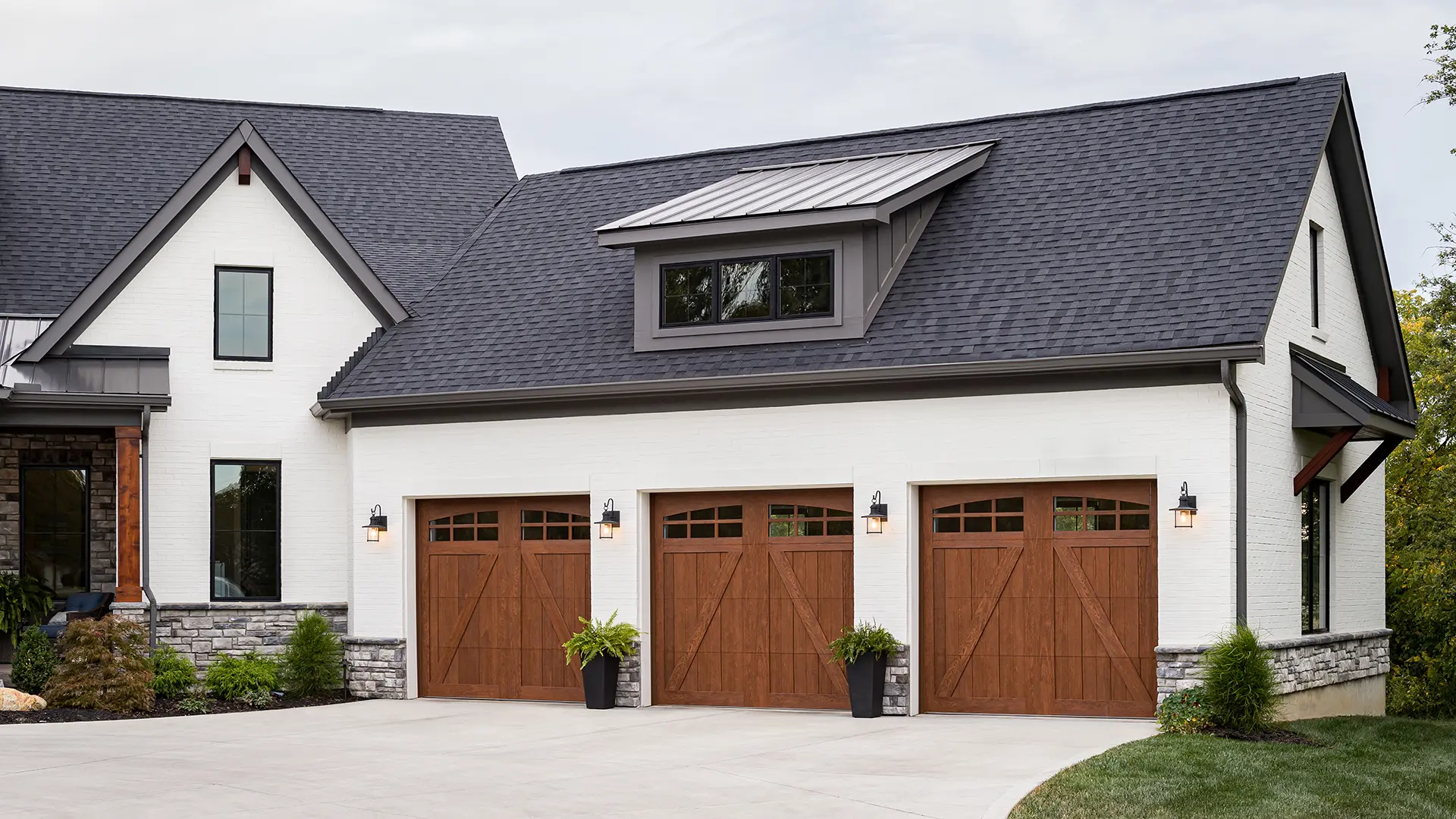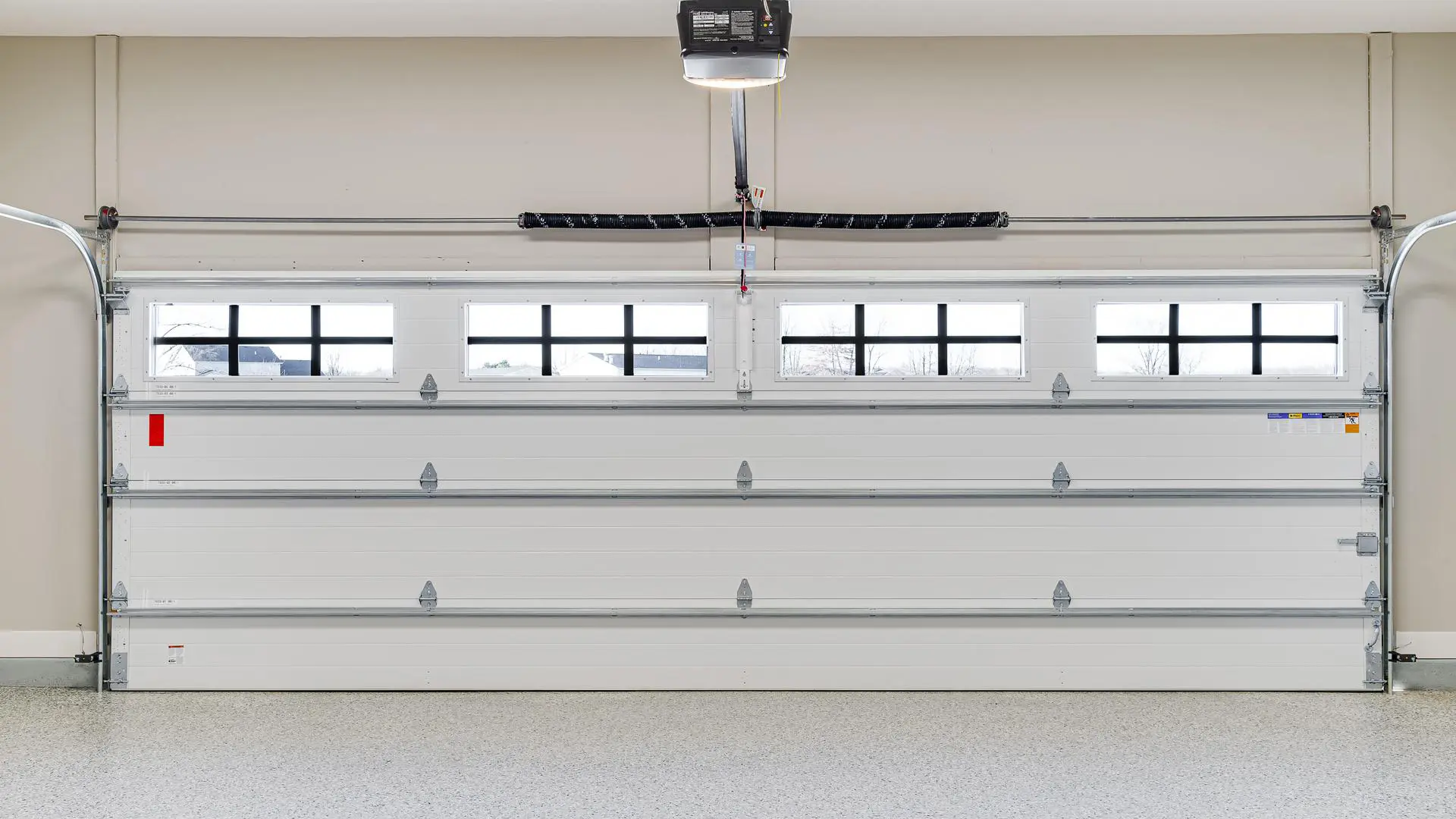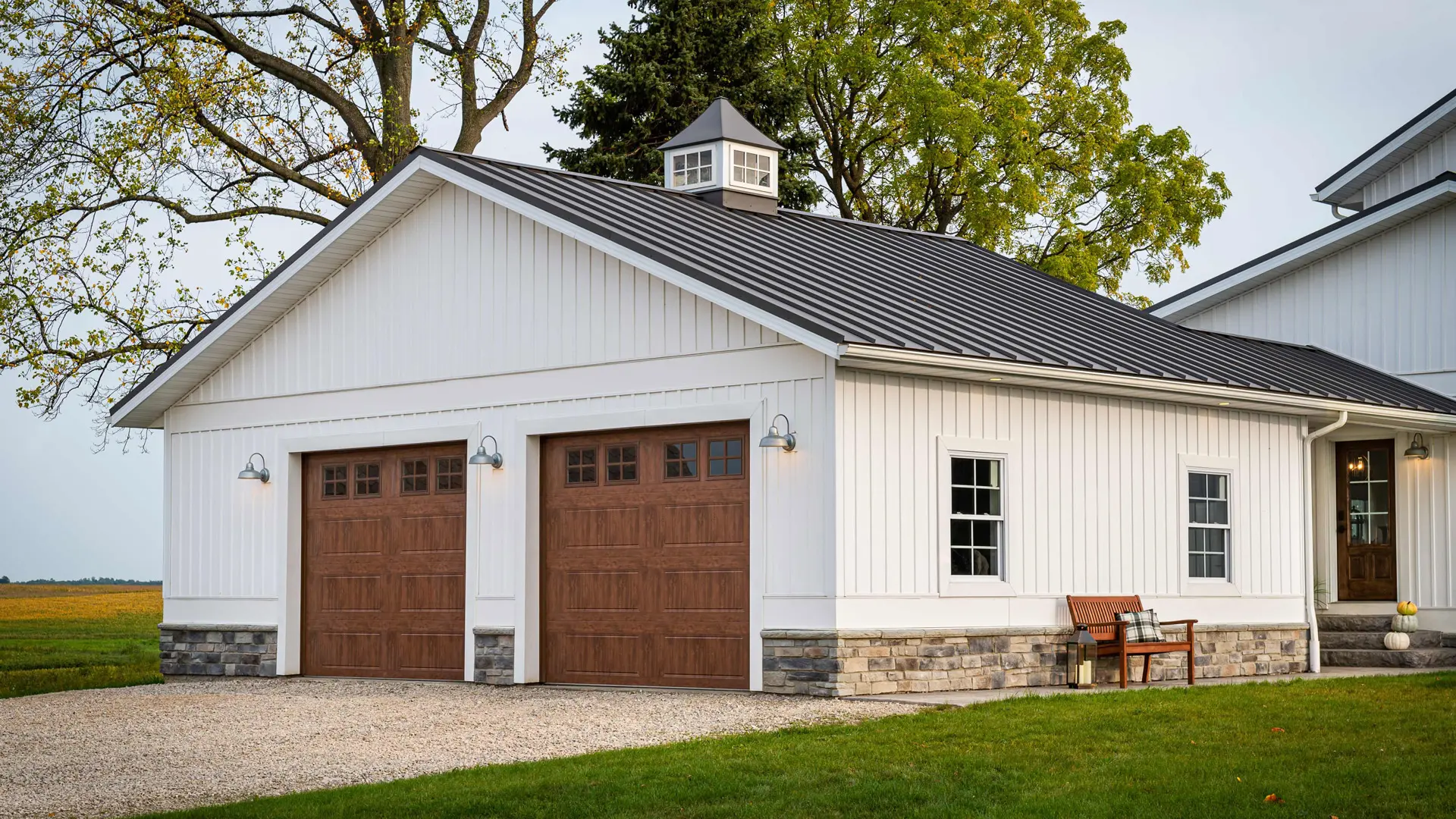Your garage door is likely the most frequently used entrance to your home, serving as the main point of entry for you and your family while also protecting your vehicles and storage. As such, it plays an important (but often overlooked) role in everyday life. And like any complex system with moving parts, your garage door requires regular maintenance so it will continue to operate safely and smoothly. That's where garage door inspections come in. Here we’ll explain the importance of regular inspections, the key benefits they provide, and what you can expect during the inspection process.
What Is a Garage Door Inspection?
A garage door inspection is a thorough examination of the door's components to identify any issues or potential problems. This includes checking the springs, cables, tracks, rollers, and sensors, as well as testing the door's balance and operation. Inspections should be performed annually or semi-annually, depending on usage. If you have a large family and everyone uses the garage as the primary entrance to your home, you may need to inspect the door more frequently. Regular inspections help catch minor problems before they become major ones, ensuring your door continues to function at its best while also prolonging its lifespan.
Key Benefits of Regular Garage Door Inspections
The benefits of proactively investing in your garage door’s upkeep include:
Enhanced Safety
The biggest reason to inspect your garage door is safety. A malfunctioning door can pose serious risks, from injuries to crushed cards. During an inspection, professionals can identify safety hazards like faulty sensors, worn cables, or improperly adjusted springs. Faulty sensors, for example, may fail to detect an object or person in the door's path, resulting in accidents. Worn cables can snap, causing the door to fall and potentially injure someone. And improperly adjusted springs can put undue stress on the system, leading to sudden and dangerous failures. By catching these issues early, you can prevent accidents and ensure the door operates safely.
Prolonged Lifespan
Regular inspections help extend the life of your garage door system. By catching minor problems before they become major ones, you can prevent wear and tear and prolong the need for costly repairs or replacements. Well-maintained doors will continue to operate smoothly for years to come, providing reliable service while also supporting your home's value. Neglecting inspections, on the other hand, can lead to premature wear, requiring you to replace the door sooner rather than later.
Cost Savings
Inspections provide a chance to identify issues early, saving you money down the line. A small problem, like a loose roller, is easy and less expensive to fix during an inspection. But if left unchecked, that roller could break, causing the door to fall off its tracks and requiring a costly repair involving new tracks, rollers, and potentially even a new door. By catching issues early, you can avoid major expenses and budget for any necessary repairs or replacements.
Improved Performance
A well-maintained garage door will operate more smoothly and quietly. During an inspection, professionals will lubricate moving parts, like the rollers and hinges, to reduce friction and keep the door gliding smoothly along its tracks. They'll tighten any loose components, which helps the door operate securely and evenly. And they'll check the door's balance, adjusting the springs as needed to make sure the door opens and closes easily. This keeps the door running like new and reduces strain on the opener.
Increased Home Value
A garage door is a prominent feature of your home's exterior, and a well-maintained one can enhance curb appeal. Regular inspections ensure the door looks and functions its best, supporting your home's overall value. A smoothly operating, attractive garage door can make a great first impression, welcoming you home and boosting your home's appeal to potential buyers if you decide to sell.
What to Expect During a Garage Door Inspection
A typical inspection involves a thorough examination of all the door's components. Professionals will check the springs, cables, and tracks for signs of wear or damage, like rust, corrosion, or fraying. They'll inspect the rollers and hinges, ensuring they're securely attached to the door and wall and functioning smoothly. The door's balance will be tested by disconnecting the opener and manually operating the door. If the door doesn't stay in place, it may be improperly balanced, putting undue stress on the system. The sensors and safety eyes will be checked to ensure they're working properly, detecting obstacles in the door's path and reversing the door's motion to prevent accidents.
Signs Your Garage Door Needs an Inspection
While annual inspections by a professional are important, there are also signs you can look out for that indicate your garage door needs attention. If the door is making unusual noises, like screeching, grinding, or banging, it's time to schedule an inspection. These noises can indicate worn parts, improper alignment, or other issues that need addressing. Similarly, if the door is operating slowly or struggling to open and close, it may be out of balance or have other problems that require attention. Don't ignore these warning signs – they can indicate a larger problem that needs addressing. The sooner you have the door inspected, the sooner you can have any issues repaired and get the door running safely again.
DIY Maintenance Tips Between Garage Door Inspections
Between inspections, there are also simple maintenance tasks you can perform to keep your garage door running its best:
- Regularly lubricating the moving parts, like the rollers and hinges, will keep the door operating smoothly. Look for lubricants specifically designed for garage doors, and apply them to the hinges, rollers, and springs.
- Visually inspect the door and its components, looking for signs of wear or damage.
- Keep the tracks clean and free of debris, and ensure the sensors are clear of obstructions.
- Test the door's balance by disconnecting the opener and manually operating the door. If it doesn't stay in place, it may be improperly balanced.
Be sure to keep a log of your maintenance activities so you can track when tasks were performed and identify any issues that may require professional attention.
Remember, a well-maintained garage door is a valuable asset that provides convenience, security, and curb appeal. They ensure your door operates safely, prolong its lifespan, and save you money by catching issues early. Inspections also improve the door's performance and enhance your home's value. Don't neglect your garage door – prioritize inspections and maintenance to keep it running its best. If you're due for an inspection, contact a Clopay dealer in your area to schedule service.
Helpful Articles
Exploring Different Types of Garage Doors




